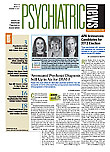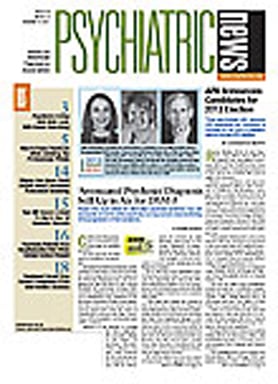In determining what benefits are essential to new insurance plans offered under the federal health care reform law, the government should consider both breadth of coverage and affordability. So recommends the Institute of Medicine (IOM) in a 293-page report commissioned by the U.S. Department of Health and Human Services (HHS) and released on October 6.
The Patient Protection and Affordable Care Act requires HHS to define a minimum set of "essential health benefits" (EHB) that must be covered by insurance plans participating in new state-based health insurance exchanges. The statute specifies 10 categories in which these benefits are to be provided, including mental health and substance use disorder services.
The IOM's report provides HHS with a set of criteria and methods for developing an EHB package; it does not recommend specific benefits. In defining individual services and products to be included in the package, the report recommends that HHS consider safety, medical effectiveness, and relative value compared with alternative options (see
Criteria to Guide Content of Essential Health Benefits Package).
The report also weighs in on the health care reform act's stipulation that an EHB package should reflect the scope of benefits covered by a "typical employer plan." The IOM recommends that HHS staff model the package on typical benefits provided by small employers, who will be among the main customers for policies in state-based exchanges.
Specifically, the report recommends that HHS determine what the national average premium for typical small employer plans would be in 2014 and ensure that the EHB package's scope of benefits does not exceed this amount. Julie Clements, deputy director for regulatory affairs in APA's Department of Government Relations, voiced concern that this approach may result in plans with more limited mental health coverage than those provided by larger employers.
However, Clements praised the IOM for recommending that HHS consult Medicaid plan benefits in helping define mental health and substance use disorder services, which have largely been left to the public sector to cover.
The IOM also urges HHS officials to be as specific as possible about what benefits are included and which can be excluded when issuing the EHB package. Additionally, the IOM recommends that HHS gather input on public health priorities through a series of structured discussions with small-business owners, the uninsured, and other individuals who may be eligible for the new insurance coverage.
HHS also will need to amend the benefits package over time to keep pace with advances in clinical technologies, changes in patient populations, and other trends, according to the IOM. The report recommends that any changes to the package be cost neutral and that HHS develop a strategy to limit the growth rate of health care spending. The IOM also recommends creation of an independent council to advise HHS on research necessary to evaluate the EHB package's effectiveness and value, among other issues related to the updating of benefits.
In regard to state requests to adopt alternatives to the federal EHB package, the IOM recommends that HHS remain open to any proposed adjustments that are consistent with the health care reform law's requirements and the criteria specified in the IOM report. Clements has expressed concern, however, that states with generous coverage may feel compelled to weaken existing benefits to match new universal standards.
Among other concerns is the absence of recommendations on how to apply the requirements of the Mental Health Parity and Addiction Equity Act to the EHB package.
An EHB work group comprising members of APA's Council on Advocacy and Government Relations and Council on Healthcare Systems and Financing has been formed to review the IOM report and make recommendations for a mental health benefits package.
The work group held its first meeting on October 13 and intends to convene a few more times before the HHS establishes an initial EHB package. HHS is expected to develop a benefits package sometime between December and May 2012.
"Essential Health Benefits: Balancing Coverage and Cost" is posted at <www.iom.edu/Reports/2011/Essential-Health-Benefits-Balancing-Coverage-and-Cost.aspx>. 
Criteria to Guide Content of Essential Health Benefits Package
The Institute of Medicine (IOM) report to the Department of Health and Human Services features several sets of criteria to aid in the development of a comprehensive and affordable essential health benefits (EHB) package. IOM recommends the following criteria as overarching guidelines.
Be affordable for consumers, employers, and taxpayers.
Maximize the number of people with insurance coverage.
Protect the most vulnerable by addressing the particular needs of these patients and populations.
Encourage better care practices by promoting the right care to the right patient in the right setting at the right time.
Advance stewardship of resources by focusing on high-value services and reducing use of low-value services. (Value is defined as outcomes relative to cost.)
Address the medical concerns of greatest importance to enrollees in EHB-related plans, as identified through a public deliberative process.
Protect against the greatest financial risks due to catastrophic events or illnesses.
An audio Webcast about the report can be accessed at <www.iom.edu/Reports/2011/Essential-Health-Benefits-Balancing-Coverage-and-Cost.aspx>.

